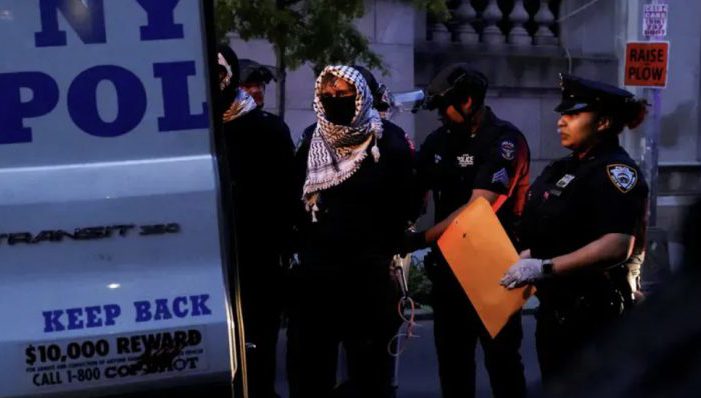Columbia University issues historic disciplinary action against 80 pro-Palestinian students over a campus library takeover, sparking a new flashpoint in the national debate on free speech, antisemitism, and protest.
New York, July 17, 2025 — In a sweeping move that marks one of the most aggressive university crackdowns in recent memory, Columbia University announced on Tuesday that it is disciplining dozens of student protesters involved in the storming and takeover of Butler Library during a pro-Palestinian demonstration in May.
The disciplinary actions—ranging from academic probation to multi-year suspensions, expulsions, and even revocation of degrees—follow weeks of internal investigations and mounting political pressure.
“Disruptions to academic activities are in violation of University policies and Rules, and such violations will necessarily generate consequences,” the university declared in an official statement.
According to the activist group Columbia for Palestine, 80 students have received notices—what the group called the largest mass suspension for a single political protest in the university’s storied history.
The protest, staged amid the intensifying Gaza war, became a symbolic flashpoint in a larger national debate about campus protests, antisemitism, and institutional neutrality. It also came after Columbia had already suspended 65 students temporarily for participating in the same demonstration.
The response has not occurred in a vacuum. Since resuming office in January, President Donald Trump has taken a hardline stance against universities perceived as tolerating antisemitic or anti-Israel activity. In March, his administration revoked hundreds of millions of dollars in federal research grants from Columbia over its alleged failure to protect Jewish and Israeli students.
Trump’s pressure campaign has led to sweeping changes on campus: Columbia agreed to ban masks at protests, empower campus police, and revise protest guidelines—but none of these concessions were enough to immediately restore the lost federal funding.
Earlier this month, The Wall Street Journal reported that Columbia’s board of trustees is in high-stakes talks with federal officials, negotiating terms that may partially reinstate funding if further actions are taken.
Critics say Columbia’s crackdown represents a dangerous suppression of political speech, while supporters argue it’s a necessary move to uphold order, safety, and academic integrity.
With disciplinary letters now in student inboxes and federal pressure intensifying, Columbia University stands at the crossroads of free expression, campus activism, and political compliance.





